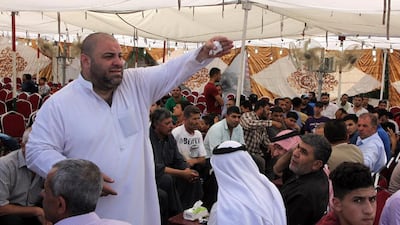Jordan said on Thursday that Israel has formally apologised for the deaths of two of its citizens killed by an Israeli security guard last July in an incident that has soured ties and led to the closure of the Israeli embassy in Amman, state media said.
Government spokesman Mohammad al Momani was quoted by state news agency Petra as saying the Israeli Foreign Ministry had sent a memorandum in which it sent its “deep regrets and apologies” and said Israel pledged to take legal steps in the case.
Jordan had said it will not allow Israel to reopen its embassy in Amman until it has launched legal proceedings against the Israeli security guard.
_______________
Read more:
Jordan insists Israeli embassy guard must face justice for Amman shooting
Father of Jordanian teenager killed at Israeli embassy still looking for answers
_______________
Jordan maintains that even if the guard had diplomatic immunity that did not mean he could not be punished.
The embassy was closed shortly after Israel hastily repatriated the guard under diplomatic immunity to prevent Jordanian authorities interrogating him and taking any legal action against him. The Israeli ambassador and embassy staff were pulled out.
Jordanian officials have treated the shooting as a criminal case and say the two unarmed Jordanians, one a bystander and the other a teenage workman, were killed in cold blood by the armed guard.
Mohammed Jawawdeh, a 17-year-old carpenter who also worked in his father’s furniture store in downtown Amman, died while carrying out work repairing and replacing furniture in an apartment rented out to the Israeli embassy.
The Israeli foreign ministry said Mr Jawawdeh attacked the deputy director of the embassy's security with a screwdriver, which caused the officer to shoot the teenager dead in self-defence. Israeli officials called the act a "terrorist attack".
The Israeli security officer then, according to Israeli officials, accidentally shot dead the landlord of the apartment, renowned physician and orthopaedic surgeon Bashar Hamarneh.

